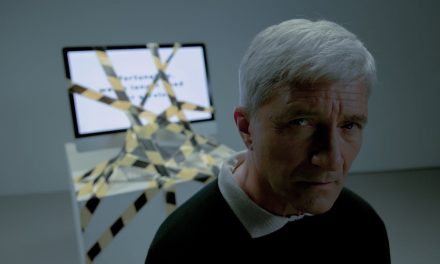Table of Contents
Navigating Unwise Ideas: Empowering Strategies for Smarter Decisions
Introduction
Introduction:
Dealing with unwise ideas can be a challenging task, requiring tact, patience, and effective strategies. Whether encountered in personal relationships, professional settings, or public discourse, unwise ideas can hinder progress, create conflicts, and impede rational decision-making. This article aims to provide tips and strategies to effectively handle unwise ideas, promoting constructive dialogue, critical thinking, and the pursuit of sound solutions. By understanding how to navigate these situations, individuals can foster a more inclusive and productive environment, encouraging the growth of wise ideas and minimizing the impact of unwise ones.
Recognizing and Addressing Unwise Ideas in the Workplace

Dealing with Unwise Ideas: Tips and Strategies
Recognizing and Addressing Unwise Ideas in the Workplace
In any workplace, ideas are constantly being generated and shared. Some ideas are brilliant and innovative, while others may not be as wise or well-thought-out. Dealing with unwise ideas can be challenging, but it is an essential skill for any professional. In this section, we will explore some tips and strategies for recognizing and addressing unwise ideas in the workplace.
First and foremost, it is important to be able to recognize unwise ideas when they arise. This requires a keen sense of judgment and critical thinking. Unwise ideas may be characterized by their lack of feasibility, potential negative consequences, or disregard for established protocols. By being aware of these red flags, you can quickly identify unwise ideas and take appropriate action.
Once you have recognized an unwise idea, it is crucial to address it in a constructive manner. This means avoiding personal attacks or belittling the individual who proposed the idea. Instead, focus on the idea itself and its potential implications. By maintaining a professional and respectful tone, you can create an environment where open and honest discussions can take place.
One effective strategy for addressing unwise ideas is to ask probing questions. By asking questions, you can encourage the individual to think more deeply about their idea and consider its potential flaws. For example, you might ask, “Have you considered the potential risks associated with this idea?” or “How do you envision this idea aligning with our company’s goals?” By prompting critical thinking, you can help the individual recognize the shortcomings of their idea and potentially come up with a more viable alternative.
Another strategy is to provide constructive feedback. Rather than simply dismissing the idea, offer suggestions for improvement or alternative approaches. This shows that you value the individual’s input and are willing to work together to find a better solution. For example, you might say, “I appreciate your creativity, but have you considered approaching the problem from a different angle?” or “What if we incorporated elements from your idea into a more practical framework?” By offering constructive feedback, you can guide the individual towards a more thoughtful and well-developed idea.
In some cases, it may be necessary to involve others in the discussion. This could include seeking input from colleagues or consulting with supervisors. By involving others, you can gain different perspectives and insights that may help address the unwise idea more effectively. Additionally, involving others can help create a sense of collective responsibility and ownership over the decision-making process.
Finally, it is important to remember that not all unwise ideas are inherently bad. Sometimes, unwise ideas can serve as a starting point for innovation and creativity. By encouraging individuals to think outside the box and explore unconventional ideas, you can foster a culture of innovation in the workplace. However, it is crucial to strike a balance between encouraging creativity and ensuring that ideas are well-considered and aligned with organizational goals.
In conclusion, recognizing and addressing unwise ideas in the workplace is a critical skill for professionals. By being able to identify unwise ideas, addressing them constructively, and involving others in the discussion, you can navigate the challenges that arise from unwise ideas effectively. Remember, not all unwise ideas are bad, and they can serve as a catalyst for innovation when approached with an open mind. By employing these tips and strategies, you can create a workplace environment that values critical thinking, collaboration, and continuous improvement.
Effective Communication Techniques for Challenging Unwise Ideas
Dealing with Unwise Ideas: Tips and Strategies
Effective Communication Techniques for Challenging Unwise Ideas
In any professional setting, it is not uncommon to encounter unwise ideas or suggestions. These ideas may come from colleagues, subordinates, or even superiors. While it can be tempting to dismiss these ideas outright, it is important to approach them with tact and professionalism. By effectively communicating and challenging unwise ideas, you can foster a more productive and innovative work environment.
One key strategy for dealing with unwise ideas is active listening. When someone presents an idea that you believe to be unwise, it is crucial to give them your full attention. By actively listening, you can gain a better understanding of their perspective and the reasoning behind their idea. This will allow you to respond in a more informed and respectful manner.
Once you have listened to the idea, it is important to ask clarifying questions. This not only demonstrates your interest in understanding their viewpoint but also helps to uncover any potential merits or underlying assumptions. By asking questions, you can encourage the person to think more critically about their idea and potentially identify any flaws or gaps in their reasoning.
When challenging an unwise idea, it is essential to remain respectful and professional. Avoid personal attacks or dismissive language, as this can create a hostile work environment and hinder effective communication. Instead, focus on the idea itself and provide constructive feedback. By offering alternative perspectives or suggesting improvements, you can encourage the person to reconsider their idea and potentially develop a more viable solution.
Another effective strategy for dealing with unwise ideas is to provide evidence or data to support your counterarguments. By presenting facts and figures, you can demonstrate the potential risks or limitations of the idea in question. This approach can be particularly effective when dealing with individuals who are more inclined to rely on logical reasoning and evidence-based decision-making.
In some cases, it may be necessary to involve others in the discussion. This can be particularly useful when dealing with persistent unwise ideas or when the person presenting the idea is resistant to feedback. By seeking input from other colleagues or subject matter experts, you can gather additional perspectives and potentially find common ground. This collaborative approach can help to diffuse tension and foster a more inclusive decision-making process.
It is also important to recognize that not all unwise ideas are inherently bad. Sometimes, unwise ideas can serve as a starting point for innovation and creativity. By reframing the idea or exploring different angles, you may be able to uncover hidden potential or identify alternative solutions. This approach can help to encourage a culture of experimentation and open-mindedness within your organization.
In conclusion, dealing with unwise ideas requires effective communication techniques and a professional approach. By actively listening, asking clarifying questions, and providing constructive feedback, you can challenge unwise ideas in a respectful and productive manner. Additionally, presenting evidence, involving others, and reframing ideas can help to foster a more innovative and inclusive work environment. By embracing these strategies, you can navigate the challenges of unwise ideas and contribute to a more successful and forward-thinking organization.
Developing Critical Thinking Skills to Evaluate Unwise Ideas
Dealing with Unwise Ideas: Tips and Strategies
Developing Critical Thinking Skills to Evaluate Unwise Ideas
In today’s fast-paced and information-driven world, it is essential to develop critical thinking skills to evaluate the validity and worthiness of ideas. With the abundance of information available at our fingertips, it is easy to come across unwise ideas that can lead us astray. However, by honing our critical thinking skills, we can navigate through the sea of information and make informed decisions.
One of the first steps in developing critical thinking skills is to question everything. This means not accepting ideas at face value but instead delving deeper to understand the underlying assumptions and evidence. By asking questions such as “What evidence supports this idea?” or “What are the potential biases at play here?”, we can begin to evaluate the credibility of an idea.
Another important aspect of critical thinking is being open to different perspectives. It is easy to fall into the trap of confirmation bias, where we only seek out information that supports our pre-existing beliefs. However, by actively seeking out opposing viewpoints and considering them with an open mind, we can gain a more comprehensive understanding of a topic. This allows us to evaluate ideas from multiple angles and make more informed decisions.
Furthermore, it is crucial to develop the skill of logical reasoning. This involves analyzing the structure of an argument and identifying any flaws or fallacies. By understanding logical fallacies such as ad hominem attacks or straw man arguments, we can spot when an idea is being presented in a misleading or manipulative way. This empowers us to separate the wheat from the chaff and make decisions based on sound reasoning.
Additionally, developing research skills is essential for evaluating unwise ideas. With the vast amount of information available online, it is crucial to be able to discern reliable sources from unreliable ones. This involves critically evaluating the credibility of the source, checking for bias, and verifying the accuracy of the information presented. By conducting thorough research, we can ensure that the ideas we encounter are based on reliable evidence and not mere speculation or misinformation.
Moreover, it is important to cultivate a healthy skepticism. While it is essential to be open-minded, it is equally important to approach new ideas with a healthy dose of skepticism. This means not accepting ideas blindly but instead subjecting them to rigorous scrutiny. By questioning the motives behind an idea and considering the potential consequences, we can avoid falling prey to unwise ideas that may lead us astray.
Lastly, developing critical thinking skills requires practice. It is not enough to simply understand the concepts; we must actively apply them in our daily lives. This can be done by engaging in debates, participating in discussions, and seeking out opportunities to challenge our own beliefs. By actively practicing critical thinking, we can strengthen our ability to evaluate ideas and make informed decisions.
In conclusion, developing critical thinking skills is crucial for evaluating unwise ideas in today’s information-driven world. By questioning everything, being open to different perspectives, employing logical reasoning, conducting thorough research, cultivating skepticism, and practicing these skills regularly, we can navigate through the sea of information and make informed decisions. With these tips and strategies, we can ensure that we are not swayed by unwise ideas but instead make choices based on sound reasoning and reliable evidence.
Strategies for Encouraging Open-Mindedness and Resolving Unwise Ideas
Dealing with Unwise Ideas: Tips and Strategies
Strategies for Encouraging Open-Mindedness and Resolving Unwise Ideas
In today’s fast-paced and interconnected world, it is inevitable that we will encounter unwise ideas from time to time. Whether it is a colleague proposing a questionable strategy or a friend expressing a misguided belief, it is important to approach these situations with tact and open-mindedness. In this article, we will explore some strategies for encouraging open-mindedness and resolving unwise ideas.
First and foremost, it is crucial to approach the situation with empathy and understanding. People hold onto their ideas for a variety of reasons, and dismissing them outright will only lead to defensiveness and resistance. Instead, try to understand the underlying motivations and emotions behind the idea. By showing genuine interest and curiosity, you can create a safe space for open dialogue.
Active listening is another essential strategy for dealing with unwise ideas. Instead of immediately jumping in with counterarguments, take the time to truly hear and understand the other person’s perspective. This means giving them your full attention, maintaining eye contact, and asking clarifying questions. By demonstrating that you value their opinion, you are more likely to foster a sense of trust and openness.
Once you have listened attentively, it is important to respond in a respectful and constructive manner. Avoid attacking the person or their idea, as this will only lead to defensiveness and further entrenchment. Instead, focus on the merits of the idea itself. Point out any potential flaws or inconsistencies, but do so in a non-confrontational way. By framing your response as a discussion rather than a debate, you can create an environment that encourages critical thinking and reflection.
Another effective strategy for dealing with unwise ideas is to provide alternative perspectives and evidence. People are more likely to change their minds when presented with compelling arguments and evidence that challenge their existing beliefs. However, it is important to present this information in a non-threatening and non-judgmental manner. Use phrases such as “have you considered” or “what if” to encourage the person to think outside of their current framework.
In some cases, it may be necessary to involve others in the discussion. This can be particularly helpful when dealing with deeply entrenched or harmful ideas. By bringing in a diverse range of perspectives, you can challenge the individual’s beliefs from multiple angles. However, it is important to approach this strategy with caution, as it can easily escalate into a confrontational situation. Choose your allies carefully and ensure that everyone involved is committed to maintaining a respectful and constructive dialogue.
Finally, it is important to recognize that changing someone’s mind is a gradual process. It is unlikely that you will be able to completely resolve an unwise idea in a single conversation. Instead, focus on planting seeds of doubt and encouraging critical thinking. By consistently challenging the idea over time, you can increase the likelihood of change.
In conclusion, dealing with unwise ideas requires a combination of empathy, active listening, and constructive dialogue. By approaching the situation with an open mind and a genuine desire to understand, you can create a safe space for discussion. Through respectful and non-confrontational responses, you can encourage critical thinking and reflection. By providing alternative perspectives and evidence, involving others when necessary, and recognizing the gradual nature of change, you can increase the likelihood of resolving unwise ideas.
Q&A
1. How can one identify unwise ideas?
One can identify unwise ideas by assessing their feasibility, logical coherence, and alignment with evidence and facts.
2. How should one approach someone who holds unwise ideas?
Approach someone who holds unwise ideas with empathy, respect, and open-mindedness. Engage in constructive dialogue to understand their perspective and present alternative viewpoints.
3. What strategies can be used to challenge unwise ideas?
Strategies to challenge unwise ideas include providing evidence-based information, encouraging critical thinking, promoting logical reasoning, and fostering a supportive environment for open discussion.
4. How can one prevent the spread of unwise ideas?
To prevent the spread of unwise ideas, it is important to promote education, critical thinking skills, and media literacy. Encouraging evidence-based decision-making and fostering a culture of open dialogue can also help in preventing the spread of unwise ideas.
Conclusion
In conclusion, dealing with unwise ideas requires a combination of tips and strategies. It is important to approach such ideas with an open mind, actively listen to the person expressing them, and seek to understand their perspective. Engaging in respectful and constructive dialogue can help challenge and counter unwise ideas effectively. Additionally, providing alternative viewpoints, evidence, and logical reasoning can help individuals reconsider their beliefs. It is crucial to maintain a respectful and empathetic attitude throughout the process, as this can foster a more productive and meaningful exchange of ideas.





